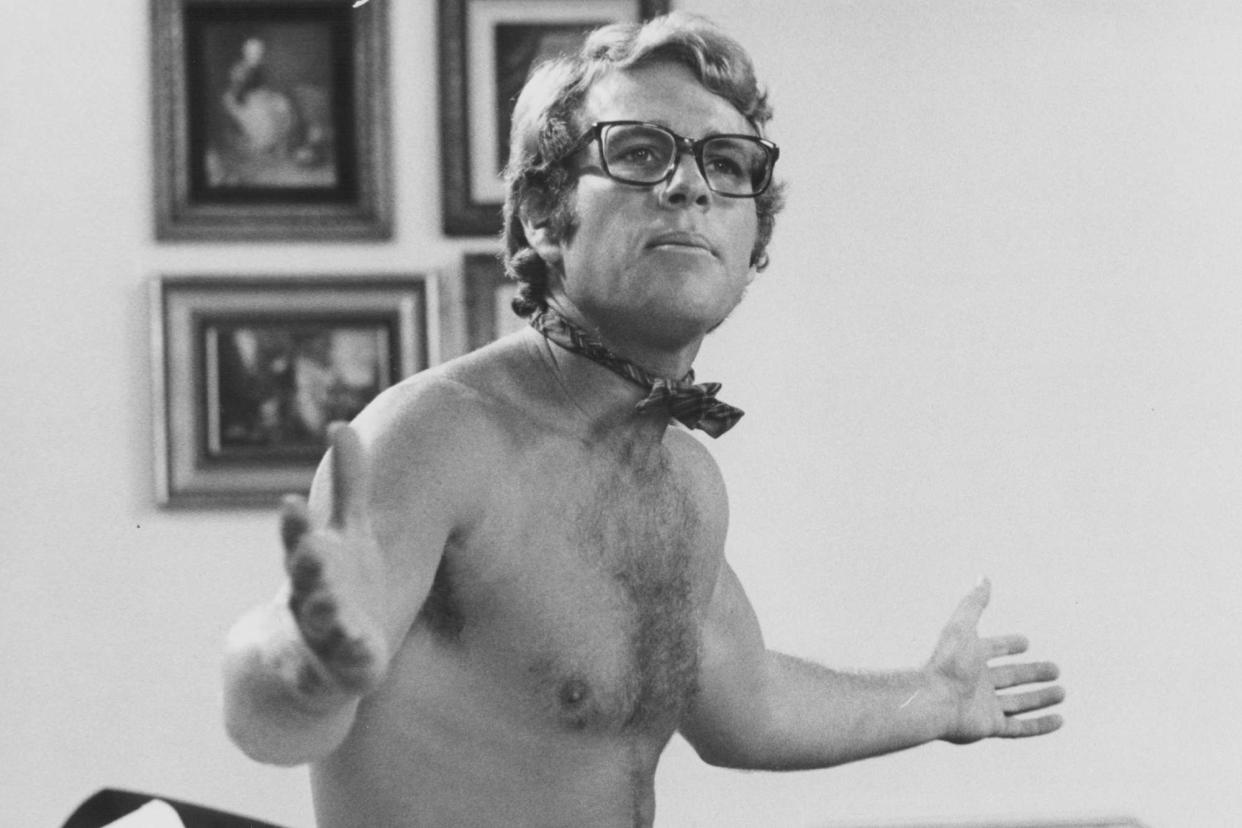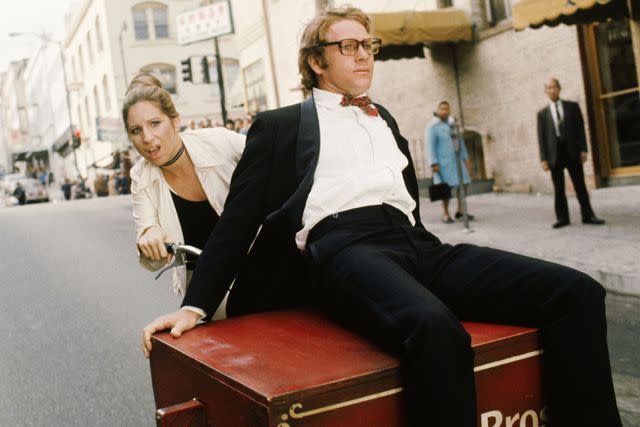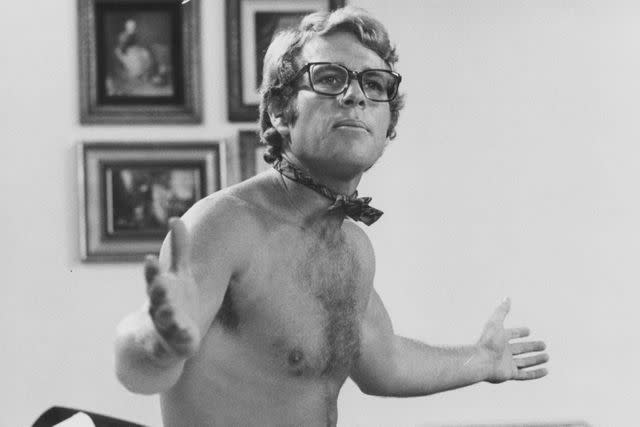Why “What's Up, Doc?” is Ryan O'Neal's best movie

"Love Story" earned the actor an Oscar nomination and the adoration of moviegoers, but his screwball turn opposite Barbra Streisand showcased the often untapped depths of O'Neal's talents.
"Love means never having to say you're sorry" will always be Ryan O'Neal's most famous line.
After all, it was the tearjerker Love Story that made O'Neal a star and earned him his sole Oscar nomination. The actor died Friday at 82, leaving behind a complicated legacy that includes his work in Stanley Kubrick's Barry Lyndon, his starring turn with daughter Tatum O'Neal in Paper Moon, and his infamously messy relationship with his family and penchant for making tabloid headlines.
But O'Neal's best and most charming work resulted from his skill as a comedic leading man, most particularly on display in Peter Bogdanovich's 1972 film What's Up, Doc?, a love letter to the screwball comedy. O'Neal stars as buttoned-up musicologist Howard Bannister, who crosses paths with the zany Judy Maxwell (Barbra Streisand) when he and his overbearing fiancée, Eunice (Madeline Kahn), come to San Francisco in pursuit of a music research grant. What follows is a grade-A farce, complete with mixed-up luggage, mistaken identity, and a hilarious car chase through the streets of San Fran via bicycle and VW bug.

Silver Screen Collection/Getty
Barbra Streisand and Ryan O'Neal in 'What's Up, Doc?'O'Neal largely made a career of playing popular preppy boys, but in What’s Up, Doc? he transforms into a nebbish academic and comes closer to approximating Cary Grant than anyone since Cary Grant. Outfitted with thick-framed glasses straight out of Bringing Up Baby, O'Neal throws his usual cool out the window, instead giving us a man being slowly unraveled by the most fascinating and infuriating woman he's ever met.
It's a masterpiece of physical comedy, and O'Neal has to do everything from endure multiple articles of clothing ripping to holding a heated conversation under a table to putting out a fire in his hotel room. But the scene that encapsulates his deft hand with the genre is one in which his character, Howard, walks in on Streisand's Judy in the bath, swiftly dropping his pants in shock, leaving him in nothing but his boxer shorts and his bow tie. She winks at the move, telling him, "I think you dropped something." But O'Neal's purpose here isn't to be sexy; instead he goes topsy-turvy, tripping over his own pants as Judy's presence sends him into a swirling panic.
This practiced chaos is a deceptively difficult art, one that requires both intense focus and a joyful abandon. O'Neal was a natural, inherently understanding that in the world of screwball comedy, there's nothing funnier than a mild-mannered man completely undone by a whirling dervish of a woman. The general impression is that Howard is merely along for the ride as his life collides with Judy's, an impression that is of course a result of meticulous planning and ingenious acting choices.

Stanley Bielecki Movie Collection/Getty
Ryan O'Neal in 'What's Up, Doc?'The film required something of O'Neal that was often missing from his roles (and his personal life) — an ability to eliminate any pretense of self-seriousness and poke fun at himself. That winking sense of humor is in every move that Howard makes, but never more so than in the film's conclusion, when he follows Judy onto a plane to profess his love and she responds, "Love means never having to say you're sorry." His reply is one of the best meta-jokes in movie history, as he answers, "That's the dumbest thing I've ever heard," skewering his star turn in Love Story.
"I mocked it," O'Neal told EW of the line in 2021. "I didn't hurt it. But I mocked it."
O'Neal brought something to the screen that had largely disappeared from cinema, and remains incredibly rare today: a screwball comedy leading man, one whose inherent romanticism is matched only by his penchant for tripping over things. O'Neal only got the chance to play a role like this once, and that's our loss. Because away from the shadow of his tempestuous offscreen life and the legacy of his work in melodrama, there lurked a gifted comedian, one who could pivot from dry, biting delivery to complex wordplay to slapstick in the blink of an eye.
Despite the vicissitudes of O'Neal's troubled life, the escapism and comedic genius of What’s Up, Doc? offer the most robust testament to what he was capable of when the stars aligned. That's all there is to it, folks.
Want more movie news? Sign up for Entertainment Weekly's free newsletter to get the latest trailers, celebrity interviews, film reviews, and more.
Read the original article on Entertainment Weekly.


